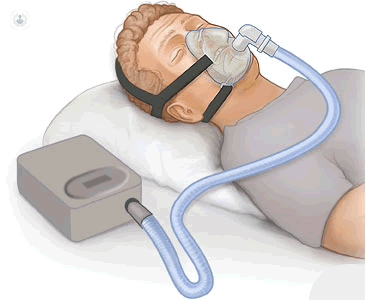Snore, what is the best treatment?
Written by:Snoring occurs as a result of an obstruction to airflow during sleep mainly. If such obstructions occur for more than 10 seconds (apnea) occurs OSA (apnea hypopnea syndrome sleep) whose gravity is proportional to the number of apneas and the degree of deoxygenation of blood. The repetition of these obstructions makes the dream is of poor quality so during the day it manifests as daytime sleepiness may be the cause of many accidents, problems at work, reduced personal performance ...

Who is affected?
Specialists in Otolaryngology say that about 20% of the population is roncadora, and this percentage increases significantly in people over 40-50 years.
Obesity (BMI +30 kg / m2) is one of the most important in the development of snoring factors.
There are other factors such as:
- anatomic alterations of soft tissue of upper airways: adenoidal hypertrophy, hypertrophy of the uvula and soft palate, hypertrophy of tonsils, lingual tonsil hypertrophy (rarely) flaccid epiglottis, macroglossia (large tongue)
- changes in size and shape of the pharynx
- mandibular disorders (micrognatia and retrognathia)
- nasal problems: nasal polyps, turbinate hypertrophy, large septal deviation
- tumors of the ENT sphere (rarely)
You can also give endocrine disorders such as hypothyroidism or acromegaly in a thickening of the pharyngeal walls which is reversible receiving adequate treatment for such endocrinological alteration occurs.
Treatment
First if it is a problem of obesity address health measures should be applied (lose weight, avoid snuff and alcohol, sleeping on the side)
Surgery
In children , the main cause in our area is the adenotonsillar hypertrophy with adenoidectomy (in adults also use these techniques, but in adults the most common cause is obesity) and a reduction tonsillar change is very noticeable.
A nasal level if any obstructive disease should be treated as any severe airflow obstruction can cause snoring and obstructive sleep apnea. The surgical procedures most commonly performed to treat snoring nasal level: septoplasty, endoscopic surgery for nasal polyposis and radiofrequency to treat turbinate hypertrophy.
A oropharyngeal level intervention with very good results is the uvulopalatoplasty in cases of great hypertrophy of the soft palate, which can be accompanied by a reduction or complete tonsil tonsillectomy (especially in adults without obesity or other diseases associated oropharyngeal, or children)
A hypopharyngeal or base of tongue, in very severe cases of lingual tonsil hypertrophy level that can intervene surgically zone (radio frequency or laser) in order to reduce the lingual tonsil. This treatment is complex and not easily accessible.
A tonsillar level, the most widely used today, in severe tonsillar hypertrophy, with great results, tonsillar reduction intervention with different techniques: laser surgery, radiofrequency surgery and electrocautery surgery
Medical treatment
It has tried to seek drug treatment increases muscle tone of the upper airway without great results.
An alternative treatment to surgery or in cases of surgical contraindication is the CPAP, the results are usually very optimal, but with the discomfort of sleeping with the machine. The CPAP is to maintain a positive pressure in the upper airways to keep them open and prevent collapse.
Meals or aggravating
We must avoid fatty foods before going to sleep and also snuff, alcohol and some sedatives such as benzodiazepines that cause muscle relaxation of upper airway obstruction will worsen.


